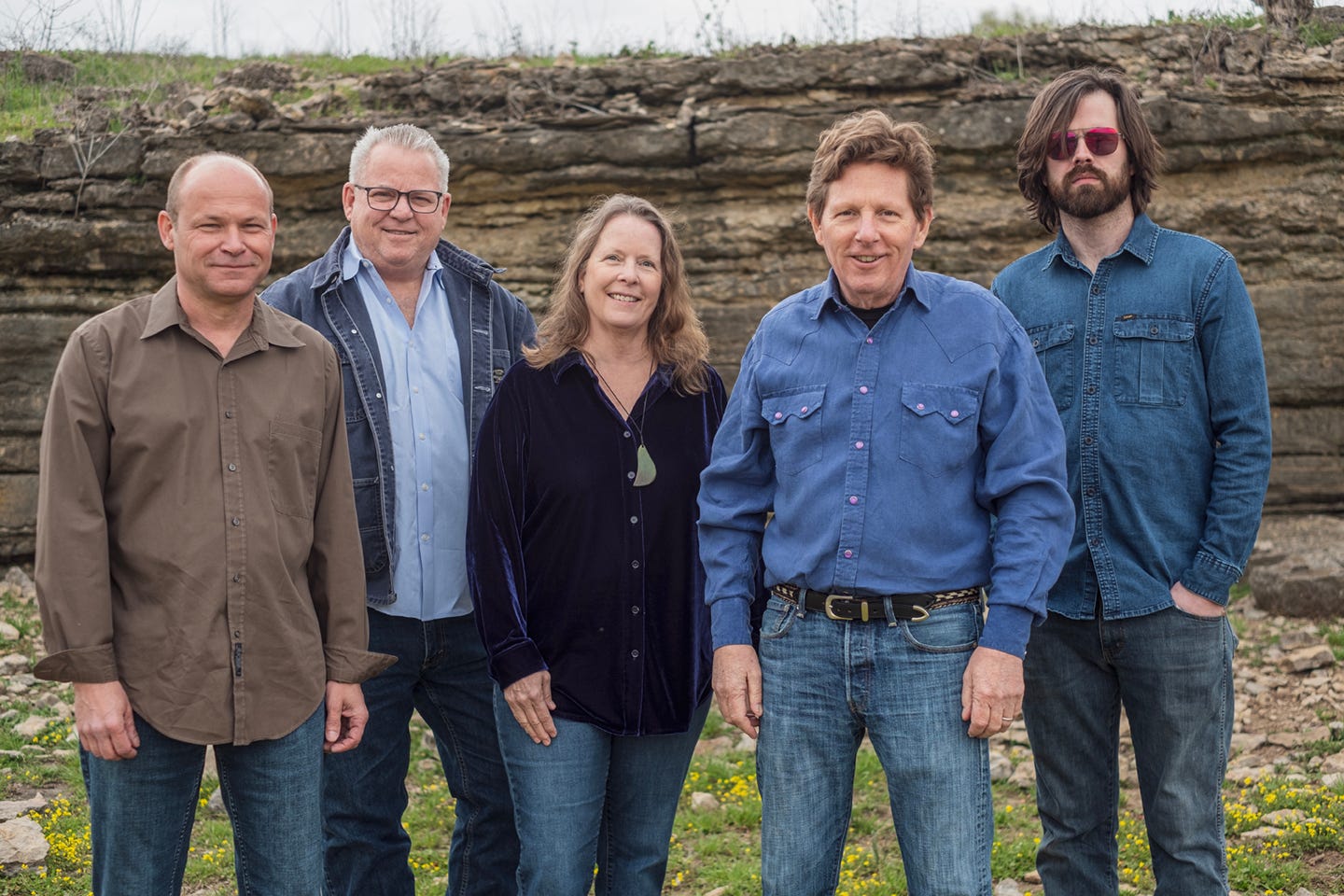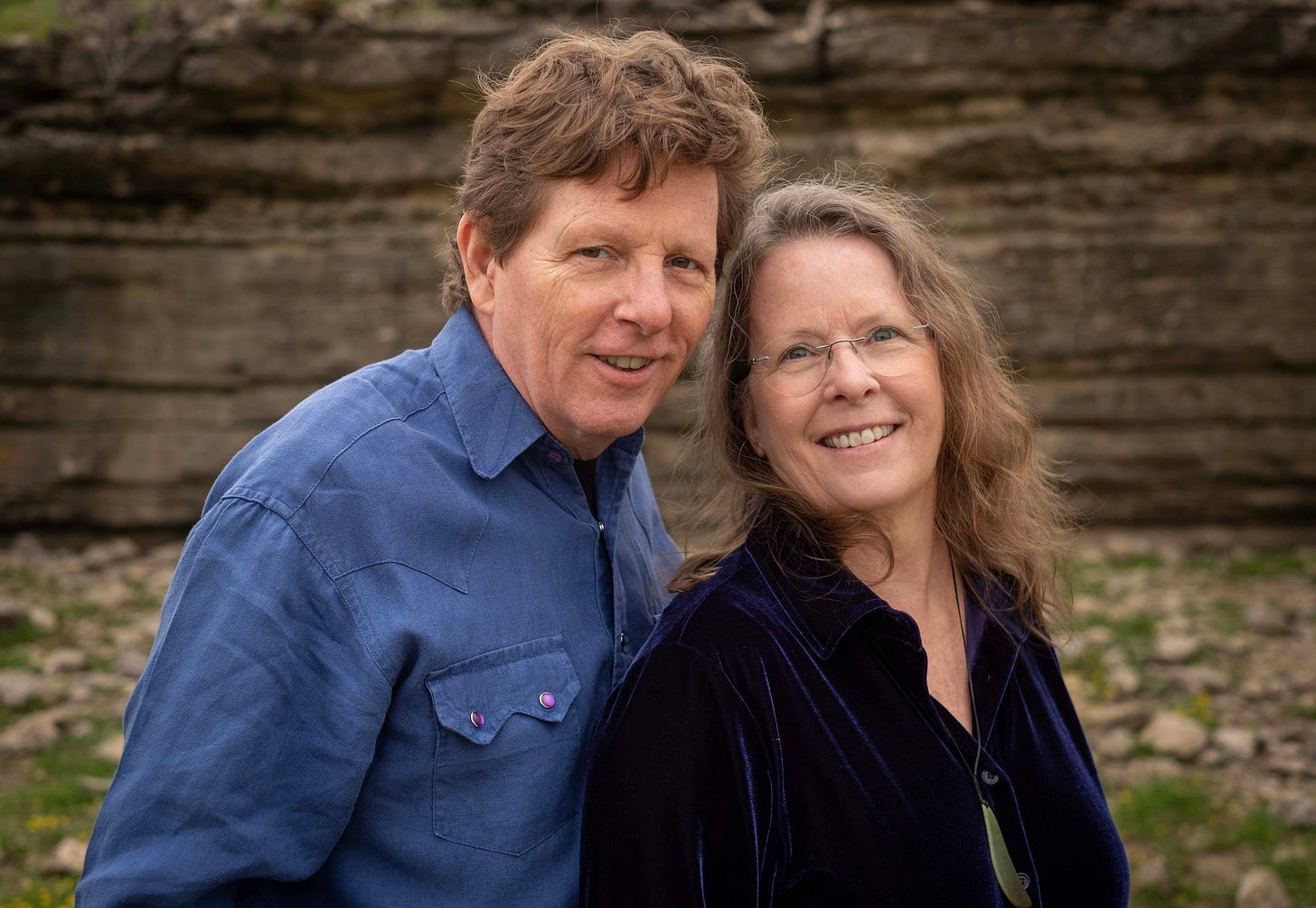Conversations: More with Tim O’Brien
An in-depth talk about music, inspirations, songwriting with Grammy winner
Tim O’Brien is a Grammy Award winning country and bluegrass musician, songwriter, and in-demand session player who has released 22 solo albums and 14 others as a member of various groups, most notably Hot Rize.
O’Brien’s songs — many of them co-writes — have been covered by Garth Brooks, The Chicks, Phish, Nickel Creek, Alison Krauss and Union Station, Hal Ketchum, The String Cheese Incident, and Kathy Mattea, the current host of National Public Radio’s Mountain Stage. He has played on albums with Guy Clark, Steve Earle, Darrell Scott, Bela Fleck, Ralph Stanley, Steve Martin, Robert Earl Keen, Jerry Douglas, Dwight Yoakam, Mark Knopfler, Mary Chapin Carpenter, John Prine, and The Chieftans, to name a few. His duet with Mattea on 1990’s “The Battle Hymn of Love” reached #9 on the Billboard Country chart.
Earlier this year, I interviewed O’Brien for a story on Mountain Stage’s 40th anniversary. The 69-year-old West Virginia native has played on the show more than any other artist, and Hot Rize is credited with helping Mountain Stage to move from a statewide program to a national broadcast in the mid 1980s.
As happens with many interviews, the conversation moved beyond O’Brien’s work with Mountain Stage and onto other topics, including the origins and process behind his songwriting, what got him into performing, and influential musicians he has played with over the years.
Here are excerpts from the conversation, lightly edited for length and clarity.
The number of different instruments you play is astonishing: guitar, fiddle, mandolin, banjo, bouzouki, mandocello. When you start playing?
“I started playing when I was about 12 years old. That would have been 1966. My friends were playing Sears and Roebuck's electric guitars and I was interested in Peter, Paul, and Mary and the Beatles and all that kind of stuff. I started there and started getting into bluegrass a couple of years later, Doc Watson and all of that. I dabbled in a lot of different types of music over the years, but I got into Hot Rize and stayed on the acoustic side of things as a result. Nowadays I do a lot of diverse stuff, but it all comes from that basic deal.”
Doc Watson would have been 100 this year. I know he was an inspiration for you and for much of what we’ve heard on Mountain Stage over the years.
“Doc came from the mountains, but he played all kinds of music. He played it with an acoustic guitar, but he made it sound like he was a world-class and he made it sound like he was on your front porch playing beside you. He played rock and roll songs, Elvis songs. He played Western swing, he played Gershwin, he'd play “Summertime” and he'd play mountain ballads and fiddle tunes and that kind of thing, He’d mix it all together and it sounded like Doc Watson music, like music from his home place. That's in line with what Mountain Stage does and a lot of what I try to do.”
When did you start writing music?
“It was probably when I was in second and third grade. I wrote little poems before I ever played instruments and made up short stories and stuff. I loved singing in school and church and then started playing so it was just natural to make up some things.
“By the time I was 13, the Catholic church where I was a student was starting folk masses, and I was part of the group that played guitars for them. The priest, Father Charles Braun, that spearheaded it was also writing original musical theater things for kids to act in and present, produce and also songs for the liturgy.
“Father Braun and a woman, a layperson named Madeline Keys, were writing songs and they asked me to help them. Here I am 13 or 14 years old and I said, ‘Okay, yes. I'll try.’ I was learning Joni Mitchell songs and The Beatles and this and that and the other thing. I went, ‘Okay, well, let me tune my guitar and see if I can come up with a melody for this lyric that you guys have.’ That's where it started.”
Every songwriter’s process is different. Do you begin with lyrics or a melody or is it some sort of combination?
“It can start any particular way. Sometimes a melody or a chord progression and a little riff in it will make me feel good. I'll say, ‘Well, I'll write something to this.’ It may not even be part of the melody of a song. Sometimes a phrase will go into your head and I'll write it down in a little notebook or on my phone, notes about a thing that I think could turn into a song.
“My wife (Jan Fabricius) and I were driving along one day and we'd been visiting some friends and they were having some trouble between them. We didn't know if they could ever sort it out. Jan said, ‘She can't.’ I said, ‘Well, he won't.’ Then we both in unison said, ‘They'll never.’ So we wrote this song. It was a very sad song, not really about the people we were with, but you get that.
“Think about it. That's a great country hook there. There's a song in it. You just paint the picture. You make a frame and paint a picture, write a little melody and chord progression to it, and sometimes it turns into something pretty cool.
“In other cases, I’ve had a melody that wouldn't let me alone. I keep liking playing it and singing it and I don't know what it's about. It might take months or a year or two years or more before I unlock it. A good idea won't leave you alone and you'll probably go back to it and finish it eventually.”
I look at all the different people you’ve played with and say, ‘I have that album. I have that album. I have that album.’ Do you enjoy these opportunities to collaborate with so many different types of musicians?
“I'm lucky that I get to do that. I got to record a couple of years ago with Bill Frissell. Why would I ever get to do that? I did because we had a common guitar teacher in Denver, and it was a project to show that relationship and show the teacher’s influence. Moving to Nashville has been great for that because soon after I got here, I was able to sell a song to Garth Brooks. I was able to play on The Chieftains record and do some touring with them because they came here to record it, stuff like that. I greatly value that.”
“Somebody like Steve Martin wanted me to sing on his banjo album (2009’s The Crow: New Songs for the 5-String Banjo) and I was like, ‘Wow, this is awesome.’ Last spring, I got to travel with him and Martin Short for three shows, watch that side of things, and help with that show. But then I go back to my wheelhouse and start from the ground up with new songs and make a record and do that too.”
You just finished a songwriter showcase tour with Mary Gauthier, Jaimee Harris, and your wife Jan. How did that go?
“Mary and Jaimee are world-class writers. Jaimee's coming up strong on the scene right now, but Mary has been there for a long time. I've been known mostly as a songwriter, but also in the bluegrass world, which is more about picking and that kind of instrumental stuff. It is as much about that as it is about the songs.
“I have a foot in both worlds like the late great John Hartford. He really leaned on the roots of traditional music, but he also made it new and he wrote his own songs. It was great for me to play to their audience and I think it was good for Jaimee's and Mary's audience to play for mine and Jan's.
“What happens in these songwriter circles is you respond to what the person did before you. You think about what's happening and what the audience’s mood is — how they're feeling, what seems to be the atmosphere. Surprising things happen. Also, with the other songwriters playing fiddle and mandolin or some backup guitar thing, it was really fun for all of us. Jamie would play some guitar on our stuff and then I'd play some on Mary's and Jamie's stuff. It really magnifies after a while, starts building up exponentially. It was a great time.
Are you going to continue to play together?
“It's done for now but we need to find another opportunity. We named it True Heart Troubadours, so it seems our natural target would be around February next year for Valentine's kind of stuff. I hope we can do more of that soon.
Even though you’ve recorded with a bunch of different labels, you started your own in 1999. What was behind that?
“The nature of the recording industry was and is changing, and I had already built an audience. It was a way to, I guess, get more value out of what I'm doing, get more back. It's more work in some ways but I think in the long run, financially, it's been well worth it. It's do-it-yourself. Punk rock was do-it-yourself stuff. Indie rock and that kind of stuff is that way. Folk music has always been that way.
“I remember when John McCutcheon started using a mailing list with a computer. That was a new thing. [Chuckles] He built a big following and he also started touring nationally, internationally. It's like you can do that yourself.
“Nobody knows your business as well as you do, so you can be more responsive to what you're doing. Like I say, it takes more work and then you have to find the money to do it, but if you stick something aside from each project, then you usually have a fund to draw on. It's like a process more than it is a making a living. I do make a living from this and have made a decent living, but just the freedom and the confidence of having an outlet for the music is worth something.”







